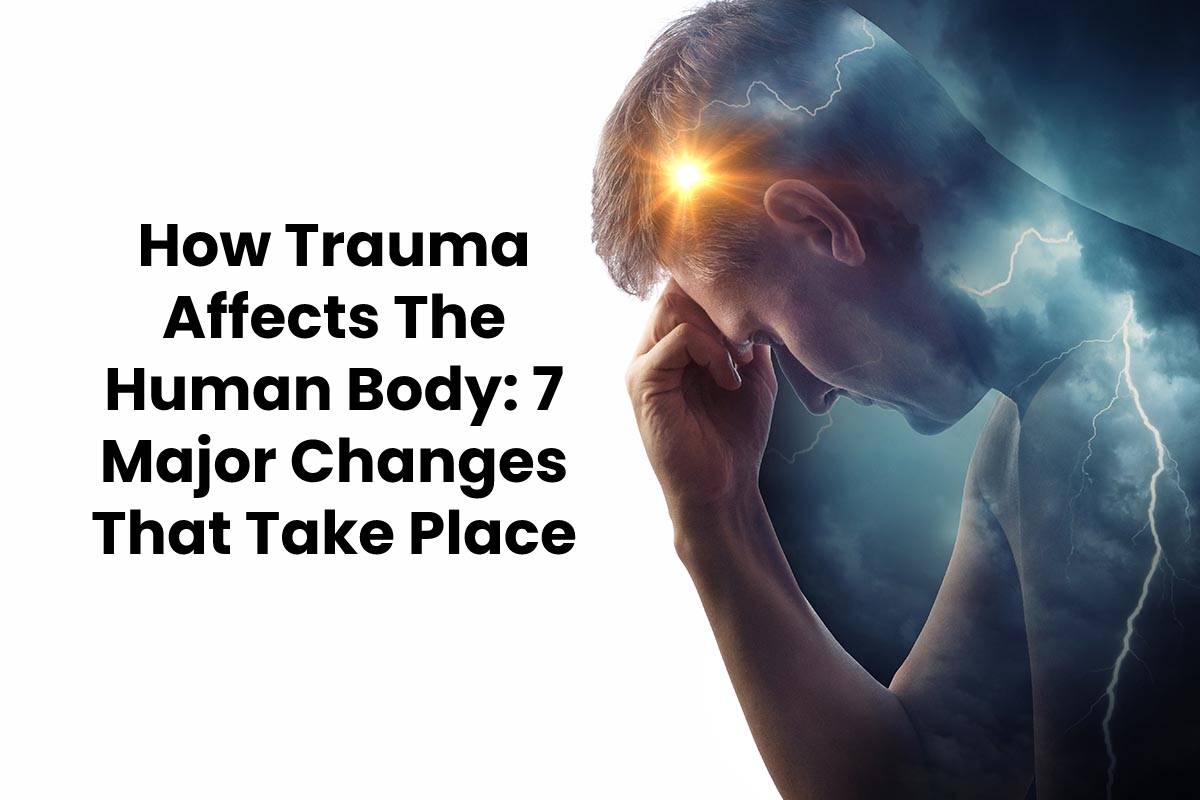
Even the most grounded among us can also be shattered by emotional stress. Although physical injuries and wounds are usually measurable and can result in injury-related physical pain, deep emotional trauma and PTSD can also significantly impact the human body.
Emotional trauma may result in long-term mental changes that can lead to dependency, discouragement, and a slew of other concerns that can devastate lives if left untreated.
When terrible catastrophes occur, it can take a lot of work to move over the memories, sentiments, and sensation of just not having the choice of having a sense of security.
If you know someone who is undergoing a trauma, you may take them to the specialists of Ocean Recovery. Click https://www.oceanrecovery.com/los-angeles-drug-rehab/ to know more details about it.
Table of Contents
What Is Trauma?
There are no two scenarios that are ever the same when it comes to trauma, yet trauma treatment may assist.
Trauma may be caused by significant life events such as being in a conflict zone, sexual assault, or a natural disaster, as well as more pervasive experiences such as growing up in an abusive household.
In the United States, an estimated 90% of individuals have been exposed to a traumatic incident at least once in their life. At any given time, eight million people suffer from PTSD.
Approximately 7-8% of all adults, or 1 in every 13 persons in the United States, will experience PTSD at some point in their lives. In addition, approximately 10% of women, compared to 4% of males, have already experienced PTSD at some point in their life.
How Trauma Affects The Human Body?
The hypothalamic-pituitary-adrenal axis, which is our body’s central stress response mechanism, is sensitized by trauma. This is the point where our endocrine system meets the central nervous system, making us more sensitive to stress and more inclined to produce the stress hormone cortisol.
1: A Prolonged Sadness
Experiencing a tragedy, such as someone passing away, and other types of misfortune may be terrifying.
Many people are distressed due to how an emotional trauma has permanently altered their lives.
You may believe that emotional trauma has caused you to miss out on particular opportunities in your daily life, which can lead to feelings of tragedy.
2: Low Confidence
The harm that trauma causes to your self-esteem feeds into the harshness and self-hatred that often accompany a traumatic life experience.
A child’s sense of worthlessness and despondency can be exacerbated by childhood trauma.
Individuals with a history of childhood trauma are more likely than those without an account to have poor self-esteem.
3: Episodes Of Anxiety
Trauma can cause feelings of fear, worry, wrath, despair, and guilt. So it’s natural if you have a dreadful response from time to time.
However, they’re an exaggeration of your body’s reaction to danger, stress, or excitement.
Getting aid and support as soon as possible might help avoid typical stress reactions from becoming worse and leading to PTSD.
4: Self-Hurt
After trauma, the rates of harming oneself are greater among students, ranging from 13% to 35%. Self-harm is also more common among those who are receiving treatment for mental illnesses.
Those in treatment who have been diagnosed with PTSD are more prone to self-harm than those who have not been diagnosed with PTSD.
As a means of seeking to adopt, you may injure yourself. This might include parts of your body that were wounded or abused due to emotional trauma.
5: Alcohol And Substance Abuse
Early traumatic experiences may raise the incidence of substance or alcohol use disorders due to attempts to self-medicate or reduce the symptoms of a dysregulated physiologic stress response.
It’s a method of attempting to adjust to troubling sensations or memories. Bullying, being in a vehicle accident, having body image issues, or growing up in a poor home are all examples of traumatic events.
According to research, stressful life events might raise one’s likelihood of developing long-term mental health issues such as addiction. In that case, one has to undergo the stages of drug recovery.
6: Hyperarousal
A prominent characteristic of trauma is hyperarousal. It happens when a person’s body goes into high alert due to thinking about a traumatic event.
Even if there is no genuine risk, their bodies react as if there were, generating long-term tension.
It’s possible that you’re restless, agitated, and unable to relax, and always on the lookout for hazards or threats.
7: Isolation
People suffering from PTSD frequently isolate themselves. As a result, you can remainor unsafe in groups, prone to rage, misunderstood, or simply uninterested in social situations.
On the other hand, isolation can lead to feelings of loneliness, sadness, and worry.
People may become isolated as a result of their painful emotions of shame, which are fueled by the notion that any attempt to be sociable would be worthless. They expect rejection because they believe they are unlovable and undeserving of affection.
What Are The Best Treatments?
When it comes to PTSD and trauma, trauma therapy is the first line of defense. Cognitive Processing Therapy and Prolonged Exposure Therapy, in particular, remain evidence-based therapies for PTSD symptoms.
After around 12 weeks, research has shown that both therapies can considerably lessen PTSD symptoms. Although not everyone exposed to trauma develops PTSD, everyone exposed to trauma has had their life severely altered by the occurrences.
Yes, evidence-based treatments can assist, but sometimes it’s the connection with a trustworthy physician that matters more than the exact treatment.
Having a stable, secure therapist may help you gradually change your schema about the world and people. It is especially important in a world where your trauma taught you that the world and people are untrustworthy.
Signing Off
As we’ve explained here, trauma can affect the human body in multiple ways. Once you notice these changes, you should seek immediate help from a trusted adult, therapist or visit the hospital yourself.
We suggest you take a look at these symptoms and assess yourself if you have any of them. For further questions, ping us in the comment section.



